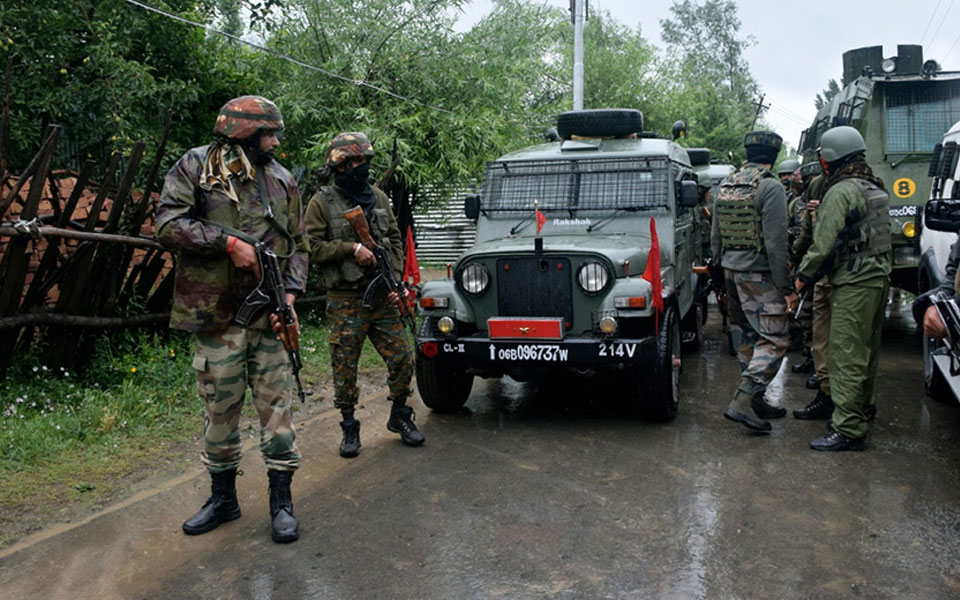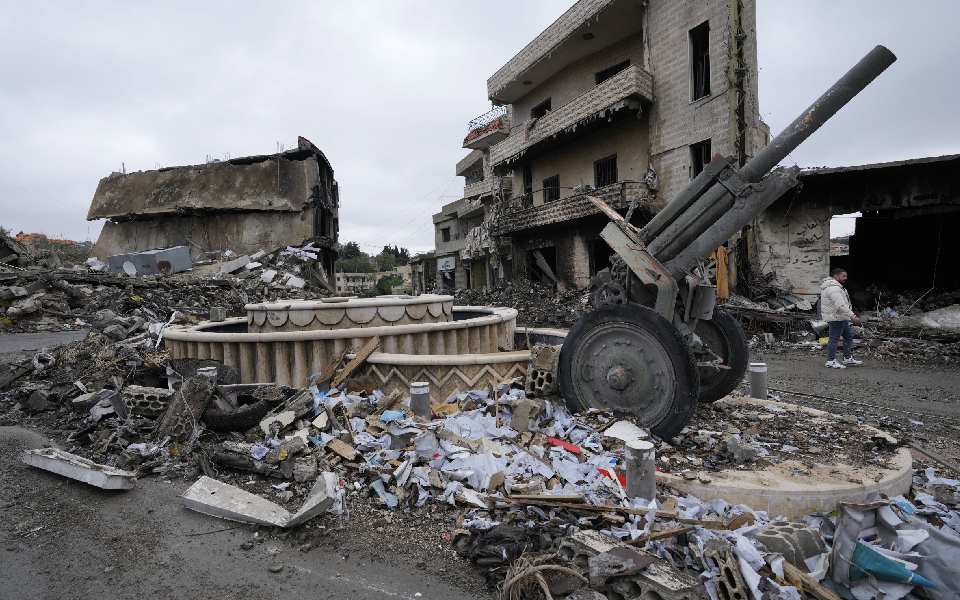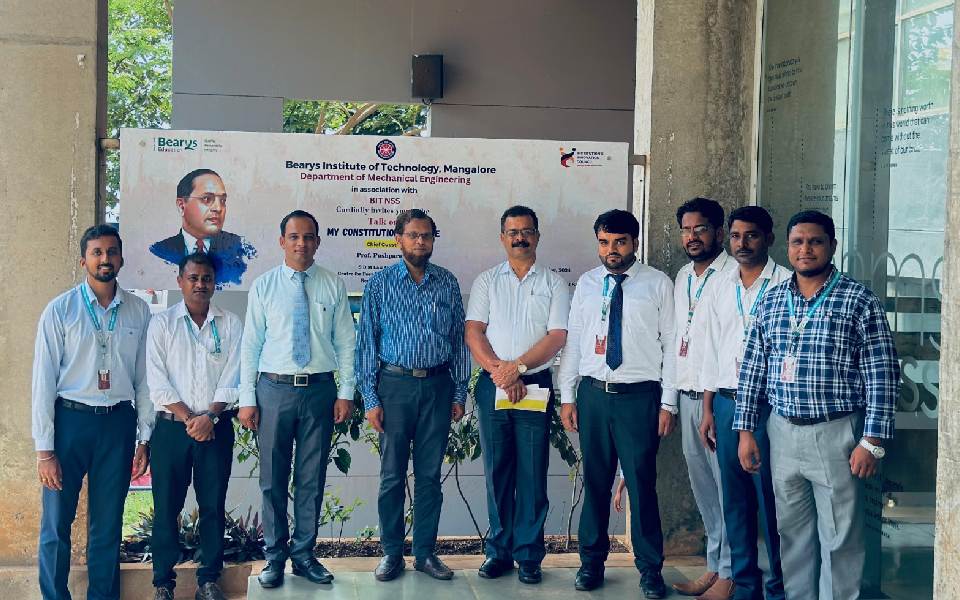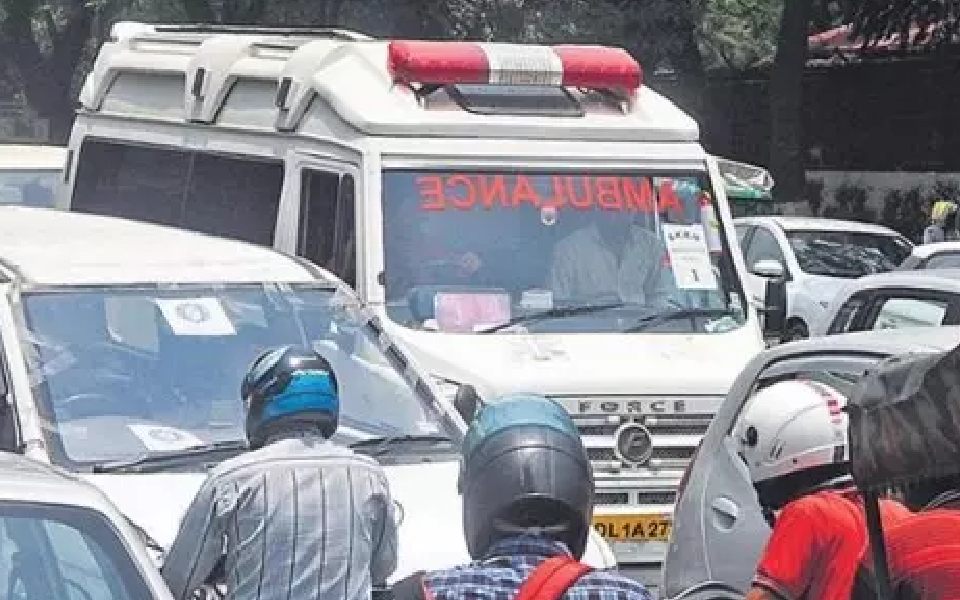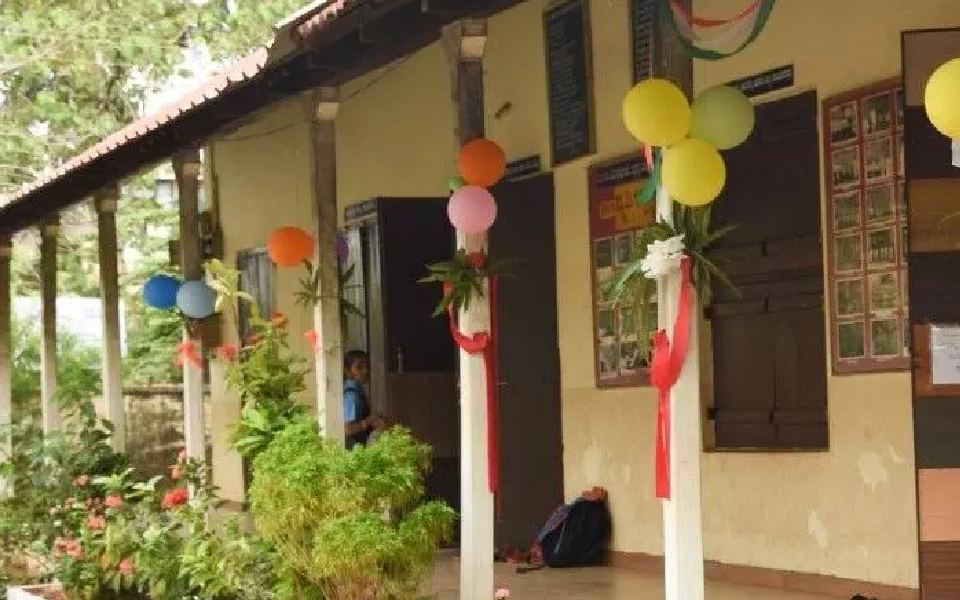SRINAGAR: Dr Abdul Gani Khan had quietly retired to his residential quarter after a distressing day attending to people injured in a clash with security forces during an encounter in Jammu and Kashmir's Pulwama district.
No sooner had he reached his residence, Dr Khan received a call to urgently return to the district hospital in Pulwama.
Little did he know who he was to attend to. He had seen so much blood and suffering through the day it seemed impossible for him to comprehend the situation.
When he reached the hospital building, he was informed his son had died in the clash and the body was brought to the hospital.
Faizan Ahmad Khan, 16, was among the people injured in the clash between stone-throwers and security forces during the encounter with terrorists in Thamuna village on Friday.
He was rushed to a hospital in Rajpora in critical condition but doctors there feared he would not survive and referred him to the district hospital, where his father practices.
"Doctors at the Rajpora hospital informed us after they recognized Faizan. They also told us he might not make it (to the district hospital)," Dr Rashid Parra, medical superintendent of the district hospital, said.
"We tried our best to revive him when he was brought to the district hospital, but unfortunately there were no signs of life in him," Dr Parra said.
It was then that Dr Parra and other hospital staffers decided to call Dr Khan from his residential quarter.
"Faizan was born at this hospital and spent his childhood in the hospital campus. We called Khan without telling him about his son and then kept him in a room as we wrapped Faizan's body in a shroud," Dr Parra said.
Surrounded by his colleagues at the hospital, Dr Khan was informed about his son's death.
"He went to the casualty ward to see his son and broke down instantly. We all were in tears...," the medical superintendent said.
"Fate had brought Faizan to the same hospital to be declared dead where he was born," he added.
Faizan's body was later taken to his ancestral home in Ladoo village of the district for last rites.
A Lashkar-e-Taiba terrorist was killed during the encounter in Thamuna village yesterday. Police said today initial reports had suggested three terrorists were killed but two of them apparently escaped during the security operation.
courtesy : ndtv.com
Let the Truth be known. If you read VB and like VB, please be a VB Supporter and Help us deliver the Truth to one and all.
Beirut, Nov 28: The Israeli military on Thursday said its warplanes fired on southern Lebanon after detecting Hezbollah activity at a rocket storage facility, the first Israeli airstrike a day after a ceasefire between Israel and Hezbollah took hold.
There was no immediate word on casualties from Israel's aerial attack, which came hours after the Israeli military said it fired on people trying to return to certain areas in southern Lebanon. Israel said they were violating the ceasefire agreement, without providing details. Lebanon's state-run National News Agency said two people were wounded.
The back-to-back incidents stirred unease about the agreement, brokered by the United States and France, which includes an initial two-month ceasefire in which Hezbollah members are to withdraw north of the Litani River and Israeli forces are to return to their side of the border. The buffer zone would be patrolled by Lebanese troops and UN peacekeepers.
On Thursday, the second day of a ceasefire after more than a year of bloody conflict between Israel and Hezbollah, Lebanon's state news agency reported that Israeli fire targeted civilians in Markaba, close to the border, without providing further details. Israel said it fired artillery in three other locations near the border. There were no immediate reports of casualties.
An Associated Press reporter in northern Israel near the border heard Israeli drones buzzing overhead and the sound of artillery strikes from the Lebanese side.
The Israeli military said in a statement that “several suspects were identified arriving with vehicles to a number of areas in southern Lebanon, breaching the conditions of the ceasefire.” It said troops “opened fire toward them” and would “actively enforce violations of the ceasefire agreement.”
Israeli officials have said forces will be withdrawn gradually as it ensures that the agreement is being enforced. Israel has warned people not to return to areas where troops are deployed, and says it reserves the right to strike Hezbollah if it violates the terms of the truce.
A Lebanese military official said Lebanese troops would gradually deploy in the south as Israeli troops withdraw. The official spoke on condition of anonymity because they were not authorized to brief media.
The ceasefire agreement announced late Tuesday ended 14 months of conflict between Israel and Hezbollah that began a day after Hamas' Oct. 7, 2023 attack out of Gaza, when the Lebanese Hezbollah group began firing rockets, drones and missiles in solidarity.
Israel retaliated with airstrikes, and the conflict steadily intensified for nearly a year before boiling over into all-out war in mid-September. The war in Gaza is still raging with no end in sight.
More than 3,760 people were killed by Israeli fire in Lebanon during the conflict, many of them civilians, according to Lebanese health officials. The fighting killed more than 70 people in Israel — over half of them civilians — as well as dozens of Israeli soldiers fighting in southern Lebanon.
Some 1.2 million people were displaced in Lebanon, and thousands began streaming back to their homes on Wednesday despite warnings from the Lebanese military and the Israeli army to stay out of certain areas. Some 50,000 people were displaced on the Israeli side, but few have returned and the communities near the northern border are still largely deserted.
In Menara, an Israeli community on the border with views into Lebanon, around three quarters of homes are damaged, some with collapsed roofs and burnt-out interiors. A few residents could be seen gathering their belongings on Thursday before leaving again.

